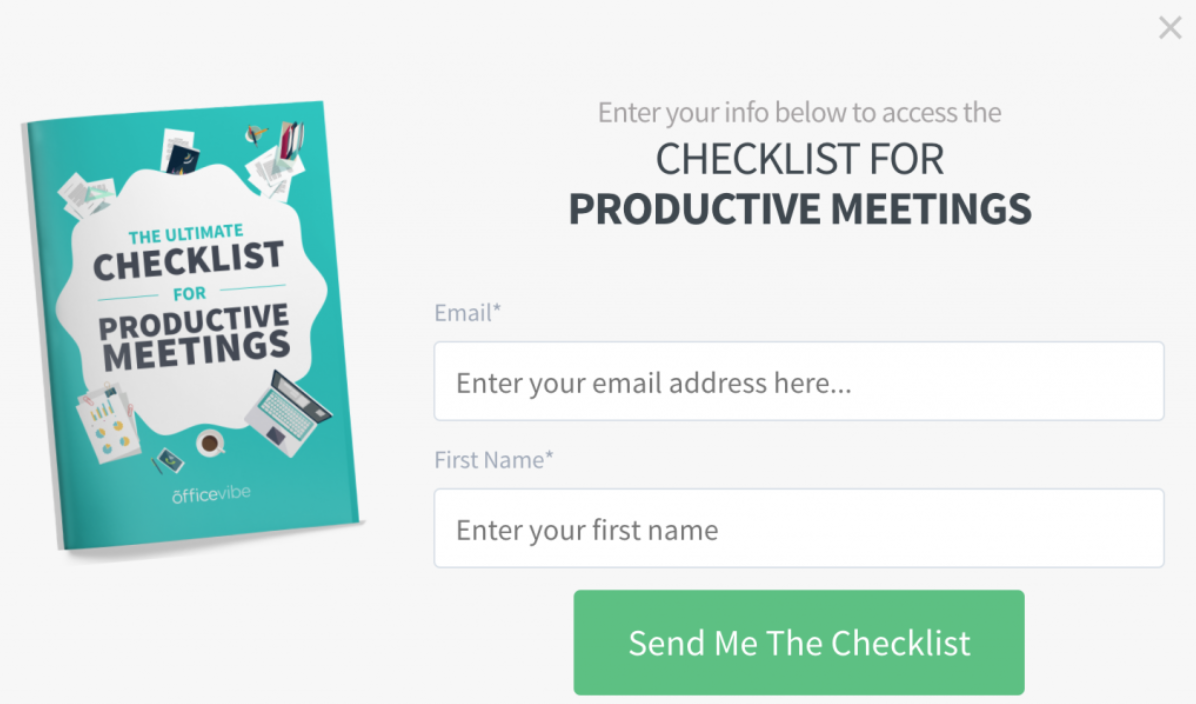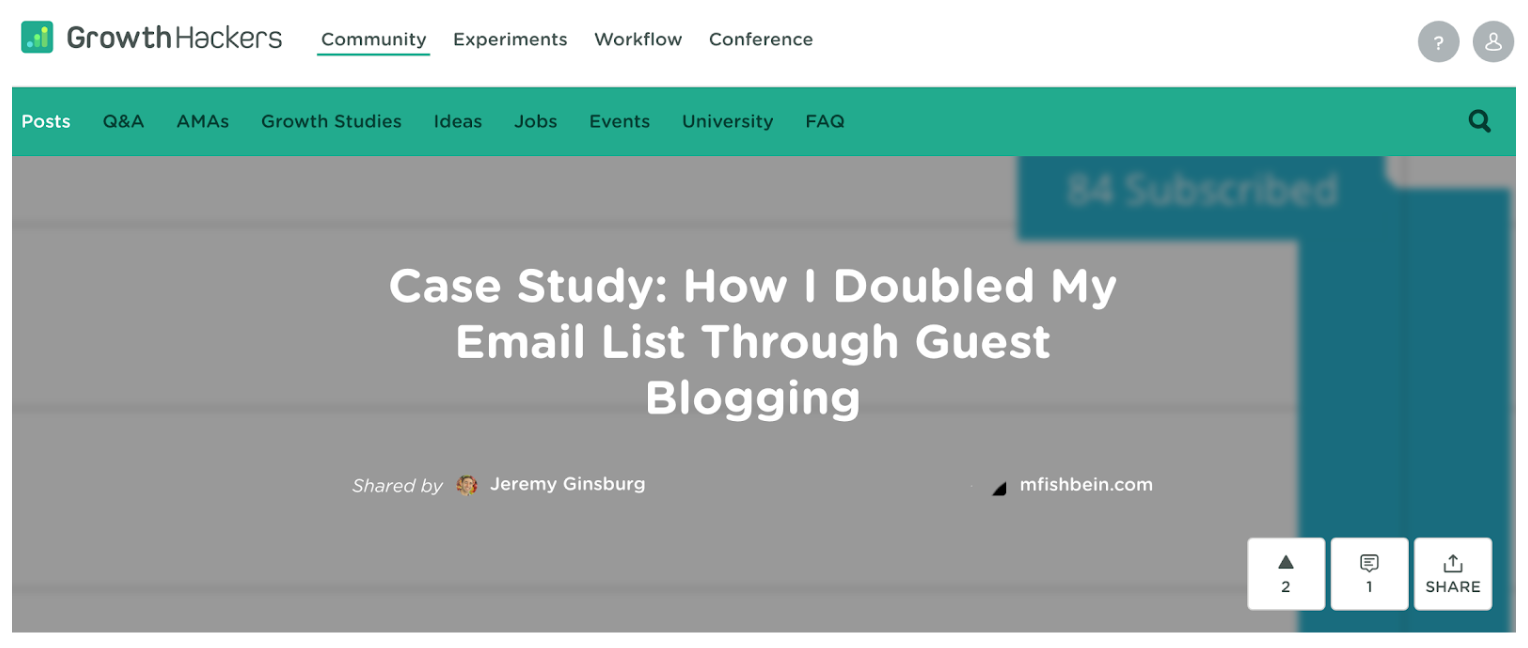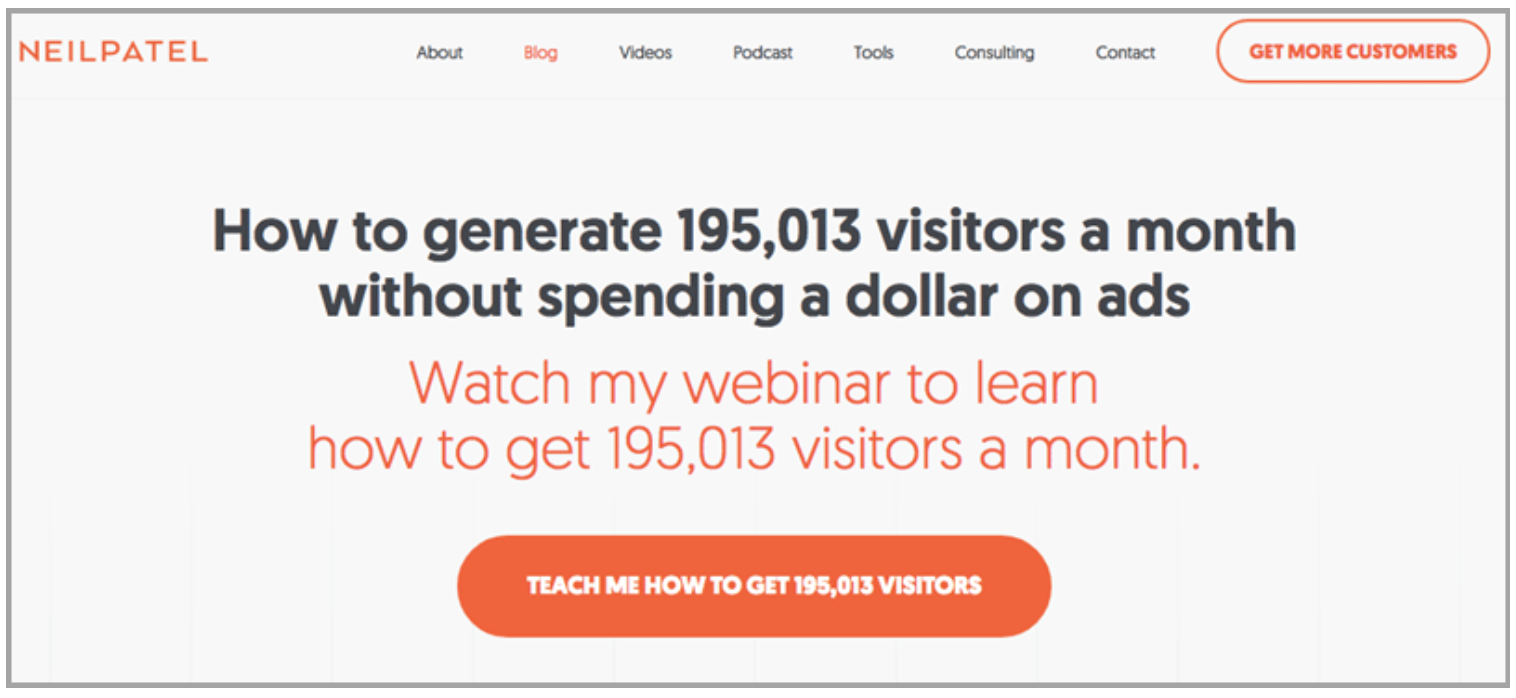
3 psychology hacks for your content marketing

Knowing what makes someone tick or what influences them to make a certain decision is a secret ingredient in every successful content marketing strategy.
Persuasion isn’t an easy thing to do (especially if you don’t know how to do it) but, if you do know the tricks of the trade, you can supercharge your content and have it achieving the results you want in no time at all.
We’ve gathered together some of the top psychology hacks you can put into play that inspire, influence, and encourage readers to take action - whether that’s encouraging them to buy, sign up, or interact in another way with your brand.
1. Reciprocity
We are more inclined to do something for someone if they’ve already done something for us and vice versa.
This is particularly true in content marketing, particularly if a consumer is engaging with a brand for the first time.
Think about it:
Imagine for a minute that someone has just come across a brand via a blog post.
Are they more likely to engage with the brand and make a purchase if the brand instantly goes for the sell in the first paragraph, or are they more likely to buy if the brand offers a free download and makes no moves to push their product?
If you think it’s the latter, you’re absolutely right.
If someone has signed up for free content from a brand and the brand has then continuously shown up in their inbox with great content and loads of value, they’re more likely to buy from them later down the line.
This is because they believe the brand has already done something for them (i.e. provided them with something of value for free) so they are more likely to do something for the brand in return (i.e. buy something from them).  This offer gives people access to a free checklist related to the blog content which works as a gift in exchange for an email address.
This offer gives people access to a free checklist related to the blog content which works as a gift in exchange for an email address.
2. Expert Advice
Let’s face it, we’re all more likely to buy from someone we consider an expert - but identifying experts in an age where almost everyone online considers themselves one isn’t easy.
This is where your content can swoop in to save the day.
First of all, let’s lay out what makes advice “expert”. Expert advice tends to be:
- Based on personal and professional experience
- Sprinkled with facts and figures and backs up claims with relevant data
- Digs deeper than the usual surface advice you might find
It’s really difficult to create in-depth articles that are driven by personal anecdotes and your own experience if you’re not an expert. This is precisely why content that has its own personal spin and is much deeper than similar content out there tends to win out - particularly if you’re selling a high-ticket product that needs some pre-purchase consideration. 
This post from GrowthHackers provides a personal backstory as well as valuable advice for readers putting it securely in the “expert” category.
3. Tell Stories
As humans, our brains are wired to tap into stories.
We love things that are neatly tied up with a beginning, a middle, and an end, which is why stories work so well in content marketing.
Since the beginning of time, we have used storytelling to pass on concepts, update people on important news, and spread the word about events. Not only can we engage with a story more than a block of text with no narrative, but we also feel an instant and deeper connection with the author (a.k.a. the brand).
This is because our brain’s sensory cortex gets activated when we listen to or read a story. We put ourselves in the center of the story and can almost taste, see, feel, and hear the things that are explained well enough to us.

GoPro is a great example of a brand that uses storytelling in its content marketing. Not only has it woven a really great brand story, they also encourage their customers to share their stories via video. As a result, they have created a community of which non-GoPro users want to be included.
We are curious creatures, and the more curiosity you can create for your audience, the more intrigued they are going to be about your brand and the more they will want to find out.
This psychological tactic works in a similar way to storytelling, in that it draws people in and keeps them coming back for more.
For example, you might execute mystery in a series of blog posts, where each newly published piece provides a sneak-peek into what’s coming up next. In another instance, you could try to encourage people to sign up for your newsletter - e.g. you offering a free download that promises readers something they really want.
 This is exactly what Neil Patel does with this blurb about his webinar. He evokes a sense of mystery and leaves his audience wanting more. It’s going to be difficult for someone who wants to increase their website traffic to not sign up.
This is exactly what Neil Patel does with this blurb about his webinar. He evokes a sense of mystery and leaves his audience wanting more. It’s going to be difficult for someone who wants to increase their website traffic to not sign up.
Content marketing is an incredibly valuable marketing tactic but, in an age where every brand under the sun is publishing content of some sort, you have to do something different to stand out - especially if you want your readers to take action.
This is where these psychological hacks will come in handy. Implementing them in different parts of your content strategy will help you influence, persuade and, ultimately, make more sales.

Lorie is the Executive Director of Content & Client Development at Elevation Marketing. An acknowledged industry leader with over 20 years experience in content marketing and strategy, Lorie’s deep expertise integrates a highly creative and intuitive approach to B2B storytelling with practical implementation and measurement throughout all organizational tactics and channels. Lorie is a sought-after expert on the topic of practical content strategy and applying real-world marketing to the art of B2B storytelling and digital marketing.

